Here are seven of the very best.
(And remember, Econsultancy offers digital marketing training)
Cyrenians – Ask Alex
Cyrenians is a Scottish charity that helps the homeless and other vulnerable people in society. It is also one of the first charities to create a digital chatbot for educational purposes – designed to inform people about how easy it is to become homeless.
Based on research that found 15% of Scottish people believe homeless people are so because of personal choice, the ‘Ask Alex’ chatbot allows users to ask questions that they might not feel comfortable asking in real life.
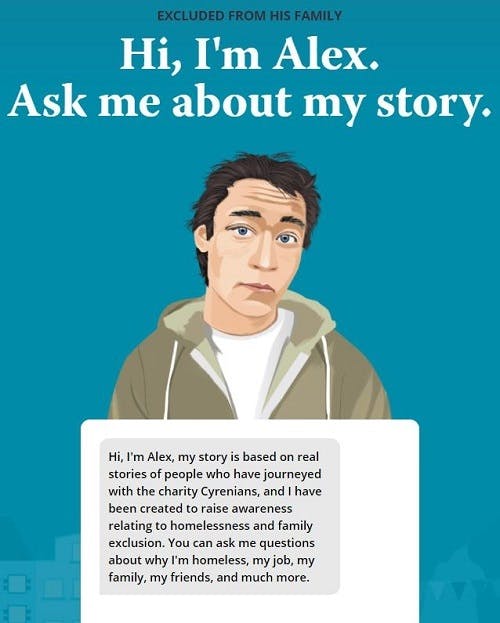
In my own interactions with Alex, I discovered that he is 20 years old and unexpectedly homeless after the breakup of a relationship. Dispelling common myths about homeless people, I also found out that he is currently residing in a B&B and has a circle of friends that first helped him when he had nowhere to go.
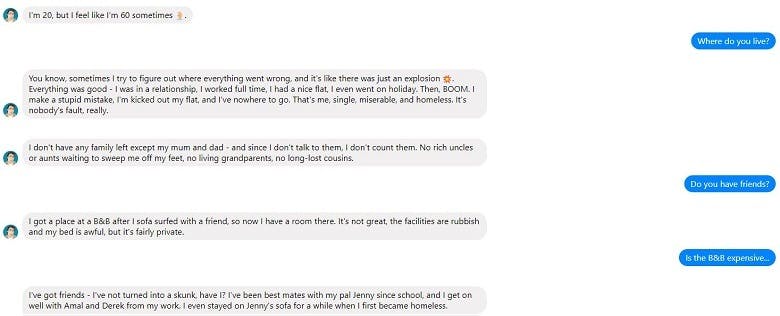
While the chatbot is not perfect (like most, it’s clunky and frustrating to use at times) – it’s a great example of a charity using the technology to break down stigmas and educate people on an often-misjudged topic.
A Marketer’s Guide to Chatbots
Royal National Institute of Blind People (RNIB) – #C4SightAdBreak
In support of last year’s National Eye Health Week, the RNIB teamed up with Channel 4 to raise awareness about the importance of eye care, and to allow viewers to experience what it’s like to live with a sight loss condition.
The campaign involved five TV ads (from brands including O2, Specsavers, and Paco Rabanne), which were broadcast consecutively during an ad break for the Undateables. Each one involved a different visual filter to illustrate the effects of a common eye condition, such as cataracts and glaucoma. The ad break was also repeated at a later time with audio description for the visually impaired.
Channel 4 has previously used its ad break for a similar purpose, using the Paralympics as an opportunity to broadcast the first ever ad break to be accessible for deaf and hard of hearing viewers. With the #C4SightBreak, it has continued its efforts to champion accessibility, effectively raising awareness with a relevant and evocative campaign.
Movember & Unmute – Ask Him
In the run up to World Suicide Prevention Day 2017, Movember decided to shine a light on the role friends, family, and colleagues can play when it comes to supporting men struggling with mental health.
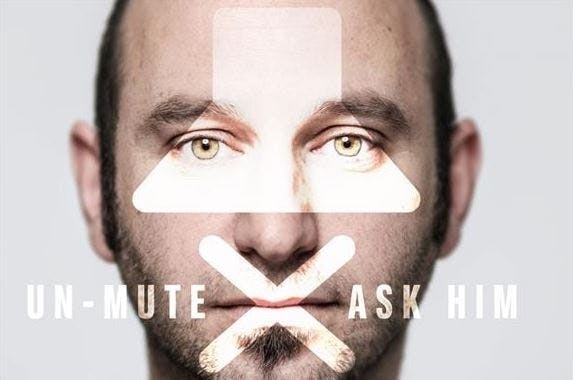
‘Unmute – Ask Him’ is a campaign that uses the metaphor of muted videos on social media. It involves three subtitled videos, which on the surface appear to show men demonstrating simple tasks such as making a fishing rod or changing a flat tyre.
However, when the user unmutes the video, they can hear what the men are really talking about (their underlying personal worries and concerns).
Highlighting how mental health is often a silent struggle, the campaign cleverly uses a relatable theme to promote how simply listening and starting a conversation can change someone’s life.
Unicef – 27 empty buses
It should arguably be described as more of a stunt rather than a marketing campaign, but I think Unicef’s 27 buses still deserves a mention in this list.
With the aim of highlighting the 27m children that are out of school and living in conflict zones, the charity drove 27 empty school buses through the streets of Manhattan.
There was just one passenger present – 19 year old Unicef Goodwill Ambassador, Muzoon Almelleha, who was forced to give up education when her family fled violence in Syria in 2013.
The campaign was timed just ahead of the United Nations General Assembly, shrewdly drawing awareness to the importance of education for children affected by conflict.
Six charities with excellent online donation user journeys
Young Epilepsy and Epilepsy Society – #explainepilepsy
In a poll of 2,000 people in the UK, YouGov – alongside the Epilepsy Society and Young Epilepsy – found that there is a huge lack of confidence in knowing how to help people with epilepsy.
As a result, the two charities partnered with retailer River Island to launch #explainepilepsy – a campaign designed to encourage the public to talk about the neurological condition that affects 600,000 in the UK.
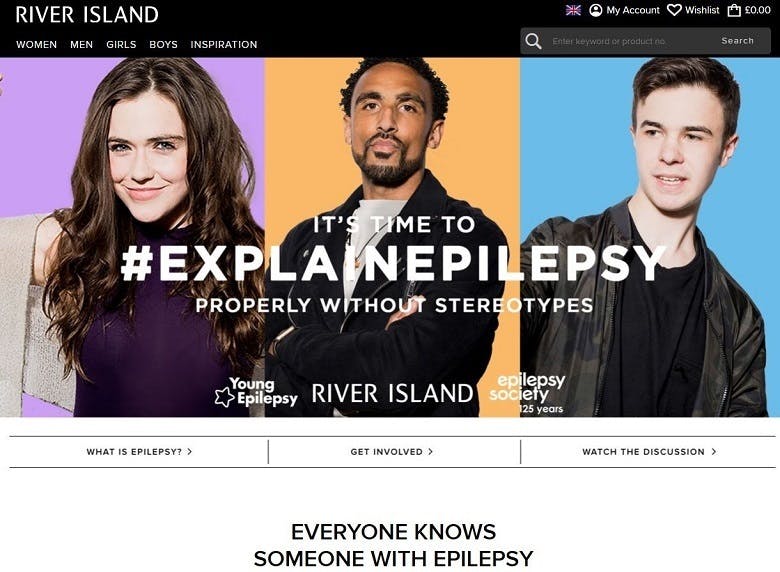
The campaign was supported by a number of household names including footballer Leon Legge, actress Kerry Howard, and S Club Junior singer Stacey McClean – each telling their own experience of epilepsy, whether personally or via someone close to them.
By partnering with River Island, the campaign ensured greater awareness on social media, with the retailer also holding a competition for users to #explainepilepsy in a single tweet for the chance to win prizes.
Congrats to #NHS worker @TraceyWolvo on her #explainepilepsy £2,000 @riverisland spree comp win! Thank you to the thousands that entered. pic.twitter.com/P8Wr2KGyPe
— Young Epilepsy (@youngepilepsy) July 19, 2017
Comic Relief – ‘Red Nose Day Actually’
Red Nose Day typically involves a load of celebrity hi-jinks, but last year’s event was particularly memorable thanks to one hotly anticipated short film.
‘Red Nose Day Actually’ saw stars including Hugh Grant, Keira Knightley, and Colin Firth reprise their famous ‘Love Actually’ roles to show us what their characters are up to 14 years later.
Unsurprisingly, there was a lot of buzz about the reunion in the run up to Red Nose Day itself, meaning that many viewers tuned in just to see the 10 minute short.
Did it result in more donations on the day? It’s hard to say, but with a total of over £73m raised last year – it certainly ramped up interest and awareness in the cause.
Battersea Dogs & Cats Home – We’re Not Laughing
While most charity campaigns strive to raise awareness about a cause, every now and again one comes along that has the potential to drive direct change.
‘We’re Not Laughing’ from Battersea Dogs & Cats Home is a prime example – a campaign that calls for the longer sentencing of animal abusers.
Joining force with a number of high-profile comedians including Paul O’ Grady, Harry Hill, Tracy Ullman, and Ricky Gervais, Battersea proposes that the maximum six-month sentence in the UK is laughable, instead campaigning for the most severe animal cruelty offences to be increased to five years.
With posters and digital billboards set up in 170 different locations around the country, the campaign ensured high visibility.
The public was also given a tangible way show their support, with an online petition generating 62,501 signatures to date.
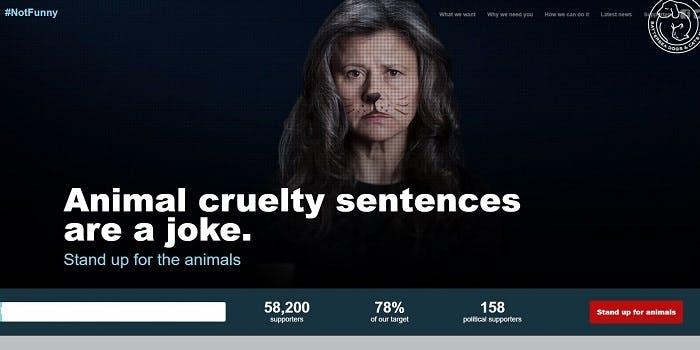
Charity websites must tackle content design & information architecture


Comments